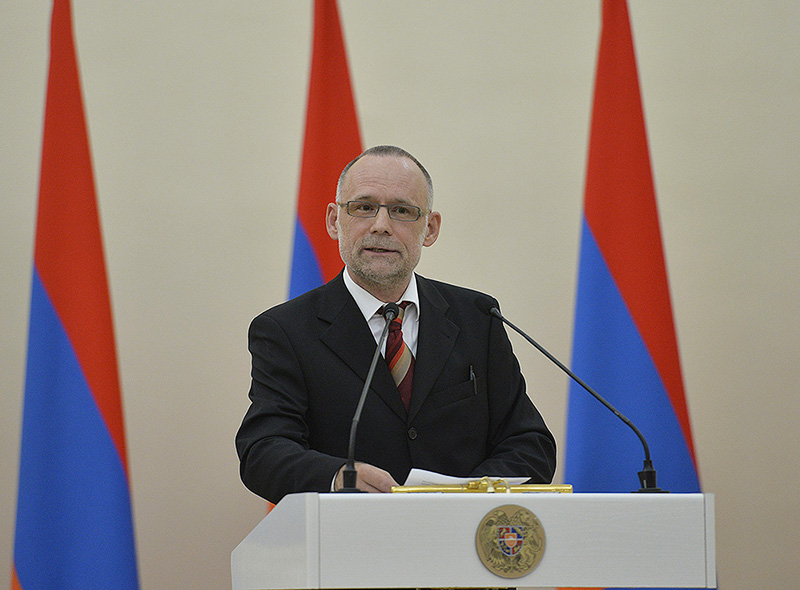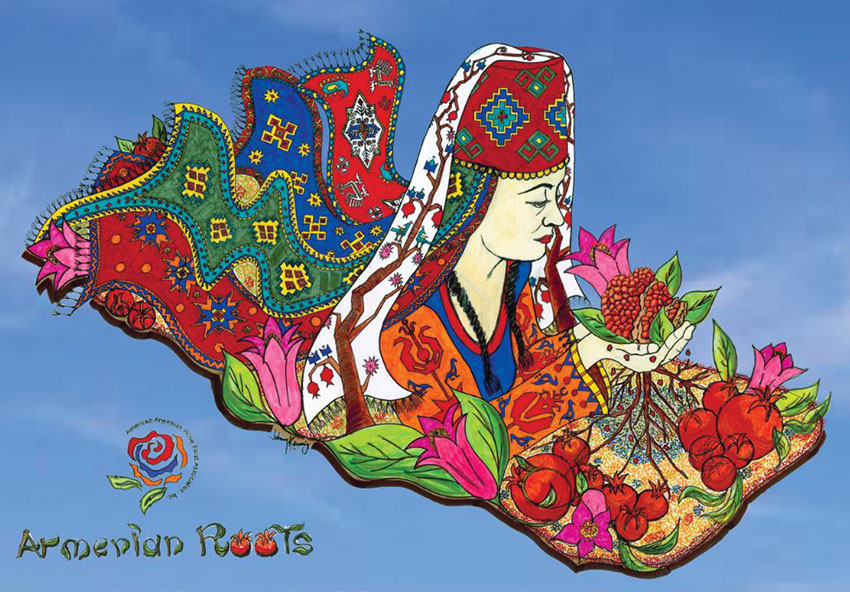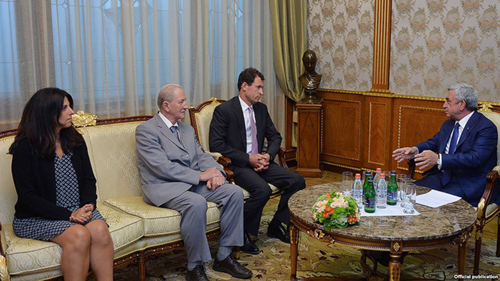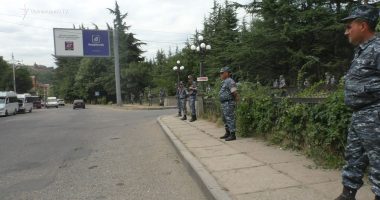YEREVAN (Armenpress) — Swiss historian Hans-Lukas Kieser has finally arrived in Armenia after 35 years of studying and touching upon Armenia and the Armenian Genocide. He is happy and excited, because during all those years he thought about coming to Armenia.
“I like Armenia very much, also the hospitality of the people. I can say that life is blossoming here. Here, I see culture, I see statues of not only heroes and politicians in the capital, but also writers and musicians –this is a sign of life, potential”, he told reporters.
The historian, who was bestowed the Armenian Presidential Award for his prominent work on the Armenian Genocide history, said that Turkey is experiencing a déjà vu in the sense that history doesn’t repeat, rather political models do.
“Meaning specific elements are repeating now, which however aren’t promising and don’t lead to the future. This is the feeling which I get when I look at Turkey. The hopes which we had during the democratization years – 2002-2010 – are shattered, and models are being repeated. History is never repeated, only models, policy and ideas”, he said.
Although Hans-Lukas Kieser doesn’t see any prospect for Turkey recognizing the Armenian Genocide anytime soon, nevertheless he finds it positive that the local politicians raise the issue.
“This is the first time when Parliamentarians openly speak about the Genocide, the representative of the Democratic People’s Party even spoke about a proposal of recognition. I believe this is a potential which is being grossly pressured, but it is impossible to kill potential – even if it seems hopeless, it can easily be transformed”, he said.
The Swiss historian said he has completed studying Talaat Pasha’s biography, which will be published in Spring of 2018.
“I’ve put forward two points in this study. First of all, I showed that Talaat was a dominant political figure, he was definitely the first, not Jemal Pasha, neither Enver. He was the man on whose shoulders Ataturk built the Turkish Republic. The other important point which I showed is that Armenia and the Armenian Genocide, his Armenophobic policy had a central place in his life”, he said.










